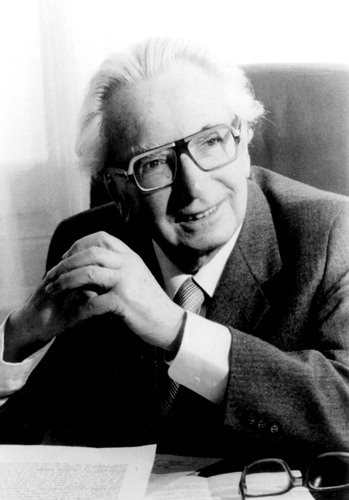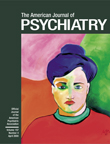Viktor Emil Frankl 1905–1997
Professor Frankl founded the “third Viennese school of psychotherapy,” calling it “logotherapy.” The Greek logos denotes meaning. Logotherapy departed from the psychotherapies of Frankl’s early mentors Freud and Adler. It focuses on the potential for self-transcendent meaningful choices, especially in response to adversity.
Frankl was a proud descendent of the medieval rabbinical leader the Maharal of Prague. As a psychiatrist, Frankl developed logotherapy before the Anschluss. In Nazi Vienna he protected his psychotic patients from “mercy killing”: some patients could be hidden, for others schizophrenia was reclassified as dysphasia, and dementia became depression.
After his deportation to concentration camps, Frankl and others attended to those most psychologically vulnerable. As a keynote of the theme of therapy then offered, Frankl quoted Nietzsche’s dictum: Whoever has a why to live for can cope with almost any how.
Frankl, however, lost his first wife, parents, and brother in the camps. After the war he returned to Vienna, remaining in public psychiatry. Taking Freud’s professorial chair, he lectured and wrote widely. His honors included APA’s Oskar Pfister Award. Frankl’s most popular book is Man’s Search for Meaning(1).
Logotherapy is existentially based, hinging on the availability of responsivity in personally unique self-transcendent and creative modalities inherent in the human condition. Special value is placed on attitudinal responses to the “tragic triad” of suffering, guilt, and death. Hence a famous dictum of Frankl: Everything can be taken from man except one thing, the last of the human freedoms, to choose one’s attitude in any given situation, even if only for a few moments.
He added a new interpretation to DSM: Despair equals Suffering minus Meaning. In the face of unavoidable suffering, the patient’s freely chosen unique self-transcendent response may be found to be powerfully redeeming.
Frankl promoted logotherapy as a supplementary approach and not as a panacea. It remains a neglected but most worthy legacy.
Dr. Gelman, Dandenong Area Mental Health Service, David St., Dandenong, Victoria 3175, Australia. Photograph courtesy of Dr. Eleonore Frankl (Frankl’s widow); Ms. Kosma is Frankl’s niece.

Viktor Emil Frankl
1. Frankl VE: Man’s Search for Meaning: An Introduction to Logotherapy. Boston, Beacon Press, 1992Google Scholar



